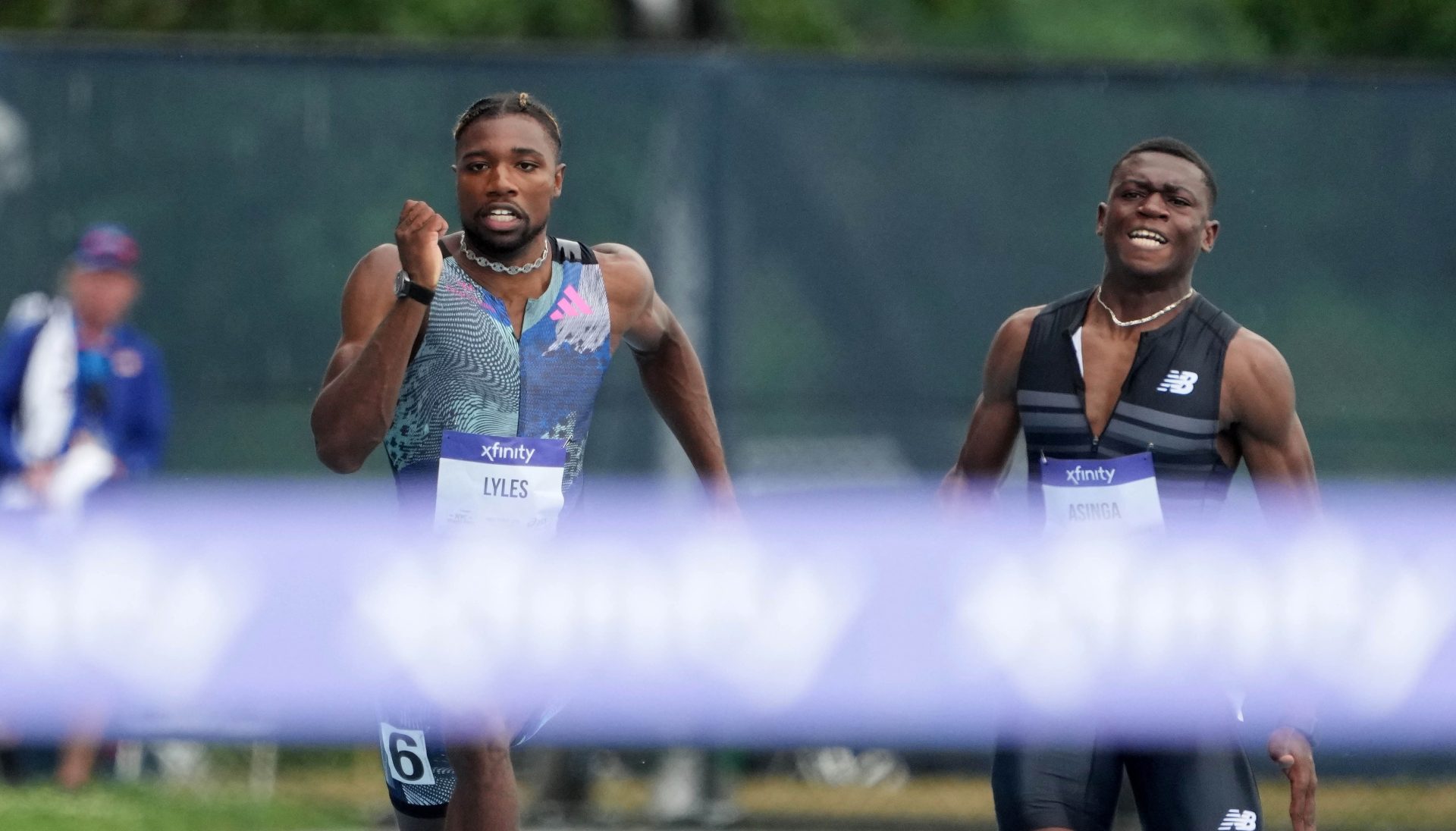A 20-year-old track and field phenom lost his lawsuit blaming Gatorade for a failed drug test that resulted in a four-year suspension and his records being stricken, with a New York federal judge dismissing the case while acknowledging how “unsatisfying” the ruling is.
Issam Asinga sued Gatorade in July of last year, claiming that tainted gummies from the company caused him to fail a drug test in 2023.
Asinga was hailed as a new track star after running 100 meters in 9.89 seconds that year; that made him the first U.S. high schooler to break 10 seconds and would have been a world junior record. Less than two weeks later, the Athletics Integrity Unit told him he had tested positive for the illegal fat-burning substance GW1516, also known as cardarine. Asinga, who represents Suriname in international competition, is fighting his battle on multiple fronts. He has also appealed a May 2024 ruling against him by the World Athletics Disciplinary Tribunal to the Court of Arbitration for Sport.
The New York federal lawsuit claimed Gatorade is at fault because it gave him recovery gummies at an awards ceremony in 2023 which Asinga says led to the failed drug test. The suit asserted that Gatorade is liable for economic losses and emotional distress suffered by Asinga in the aftermath of the suspension.
On Monday, however, U.S. District Judge Cathy Seibel ruled in favor of Gatorade, saying Asinga made faulty arguments. He tried to make claims including product liability, negligence and negligent misrepresentation. But the judge said Asinga merely alleged that he suffered economic damages, such as lost income and financial opportunities.
Asinga, who had been offered a scholarship at Texas A&M University, has said the school honored that agreement during the 2023-24 academic year. As recently as this summer, he was training at the university, even though he has not raced since the suspension.
Asinga’s attempts to claim that there was a “personal injury” component to the suit—because the substance found in the Gatorade gummies could have caused adverse health effects—failed, because the amount of cardarine found was inconsequential and he did not specify any health effects.
“Plaintiff’s argument that the drug ‘caused immediate physical harm’ by ‘contaminat[ing] his blood, organs, and urine fares no better; the positive drug test merely demonstrated that Plaintiff had ingested the substance, not that it had harmed him or threatened to harm him in any tangible way,” the judge wrote.
“The Court understands how unsatisfying this decision will be for Plaintiff,” the opinion said. “Taking the allegations in the Amended Complaint as true, he will (absent success on appeal before the Court of Arbitration for Sport) be deprived of his athletic career for four years through no fault of his own. Unfortunately, the causes of action he has asserted are not the right fit for the circumstances.”
Ali Chardon, a lawyer for Asinga, said the ruling provides her client with “no way to access justice” for his damaged track career, and noted “we think the decision is wrong, and are evaluating next steps,” according to Reuters.
Asinga’s attempt to fight his suspension, both in public and in court, illuminated a complicated chain of custody with regard to the gummies that led to the suspension. According to Asinga, the gummies Gatorade provided falsely featured a “certified for sport” label. When Asinga submitted an open bottle of those gummies to the Athletics Integrity Unit, he was told a sealed bottle was required for testing. However, he discovered the product had been discontinued and Gatorade no longer had any sealed bottles from the same lot. Not only that, the now-discontinued gummies had never even been certified in the first place, according to the lawsuit. Ultimately, Gatorade provided a sealed bottle of recovery gummies from a different lot, which tested clean, after which Asinga was charged with the doping violation.
The ruling comes not long after Asinga’s former coach, Gerald Phiri, was provisionally suspended last month by the Athletics Integrity Unit for alleged doping violations. A U.S. Anti-Doping Agency investigation found Asinga was one of three athletes under Phiri who tested positive for the same illegal substance in 2023 and 2024. The AIU has alleged Phiri possessed the substance when he was an athlete and was later caught with meldonium, another banned substance, when he was transitioning into coaching.
Representatives for Gatorade did not immediately respond to a request for comment Tuesday.






![[Subscription Customers Only] Jun 15, 2025; Seattle, Washington, USA; Botafogo owner John Textor inside the stadium before the match during a group stage match of the 2025 FIFA Club World Cup at Lumen Field.](https://frontofficesports.com/wp-content/uploads/2026/02/USATSI_26465842_168416386_lowres-scaled.jpg?quality=100&w=1024)
![[Subscription Customers Only] Jul 13, 2025; East Rutherford, New Jersey, USA; Chelsea FC midfielder Cole Palmer (10) celebrates winning the final of the 2025 FIFA Club World Cup at MetLife Stadium](https://frontofficesports.com/wp-content/uploads/2026/02/USATSI_26636703-scaled-e1770932227605.jpg?quality=100&w=1024)









